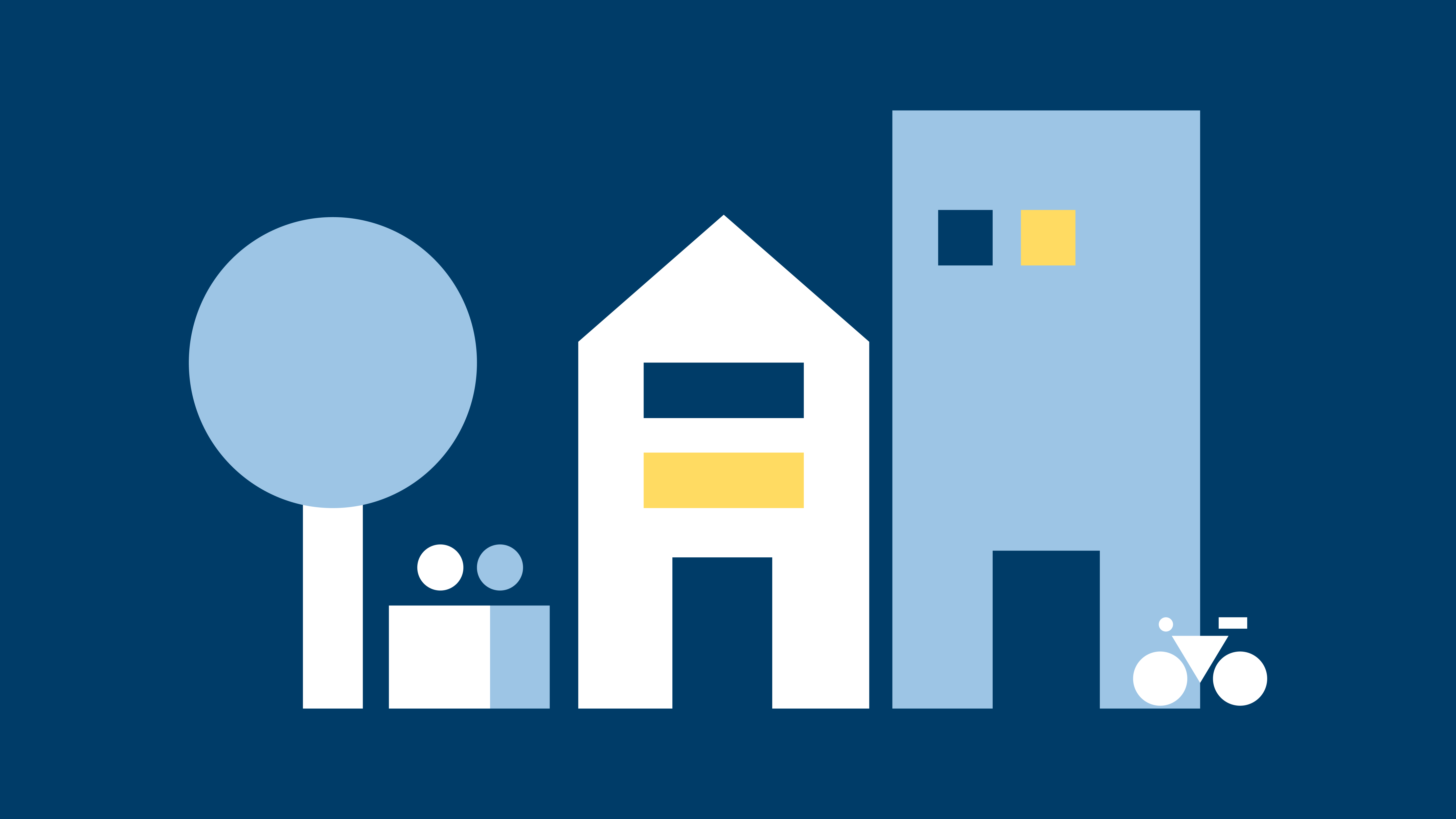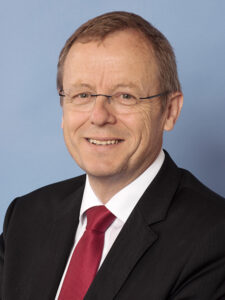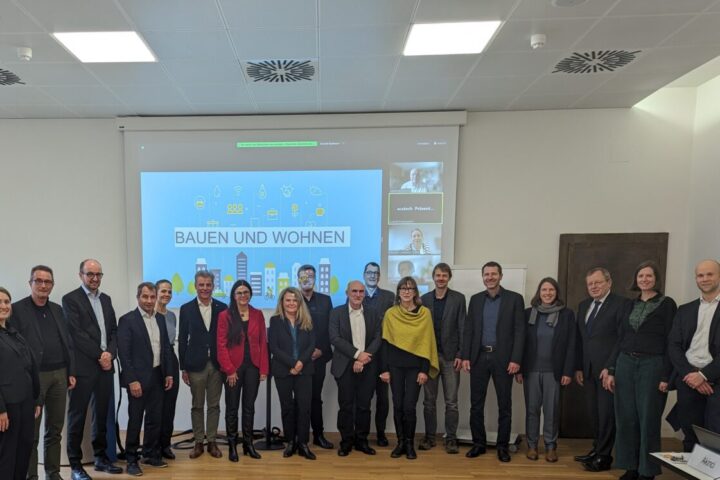Building & Living: a platform for networking, synthesis, and transfer

Background and goals
There is a lack of affordable housing with a good quality of life in Germany – studies speak of a shortage of up to 800,000 homes. In lower income groups in particular, one in five people live in too little space. In addition, the building sector accounts for around 60 percentage of global resource consumption, more than 50 percentage of global emissions of climate-damaging gases and over 35 percentage of global energy consumption. Therefore, transforming the building sector is crucial in promoting a resource-conserving economy and combating global warming. Adapting the built environment to changing conditions is crucial. This includes designing climate-resilient cities, accommodating changing lifestyles, and moving towards smart cities. Additionally, the German government aims to create affordable, high-quality housing.
For that purpose, the Building & Living Platform focuses on developing and evaluating solutions with a particular focus on the importance of affordability, sustainability, and quality (essential living comfort). This is accomplished by bringing together relevant players in the industrial ecosystem (networking), combining social science knowledge with natural and technical science knowledge (synthesis), and stimulating concrete economic activity (transfer). The analysis evaluates solutions based on their transferability and scalability, with an emphasis on existing building structures and their potential for sustainable transformation. The experience exchange will occur in different working groups, accompanied by innovative dialogue formats such as the implementation of citizens’ councils and practical workshops. Furthermore, existing real-world laboratories in Germany in this field will be mapped. The dialogue will result in proposed options for adapting the policy framework.
Working group 1: Building materials, construction and energy (WG 1)
The working group “Building materials, construction and energy” (WG 1) is dedicated to technical innovations with a perspective on individual buildings. It will analyse existing obstacles and how costs could potentially be reduced – for example through serial and modular building, increased use of digital tools and circular business models. There is a particular focus on reviewing existing standards in residential construction and simplifying building regulations – with the overall objective of promoting more affordable housing.
Members of Working group 1
Lead of working group:
Dr.-Ing. Daniela Kiefer
Head of Product Management Isokorb®, Schöck Bauteile GmbH
Prof. Dr.-Ing. Stefan Winter
Ordinarius of the Chair of Timber Structures and Building Construction, TU Munich
Members:
Dominik Campanella
Managing Director, Concular GmbH
Sarah Dungs
Chairwoman of the Association for Building in Existing Contexts e.V.; Managing Director, Greyfield Group; Board of Greyfield foundation
Prof. Dr.-Ing. Jürgen Graf
Head of Research at the Department of Structures and Materials, Faculty of Architecture,
Rhineland-Palatinate University of Technology Kaiserslautern-Landau
Prof. Dr.-Ing. Annette Hafner
Head of the Chair of Resource Efficient Building, Faculty of Civil and Environmental Engineering,
Ruhr University Bochum
Michael Halstenberg
Lawyer, Franßen & Nusser Rechtsanwälte PartGmbB
Josef Huber
Managing Partner, Huber & Sohn GmbH & Co. KG
Tobias Karlhuber
Architect, Robert Meyer und Tobias Karlhuber Architekten
Frank-Thomas Kronsbein
Product Manager Residential Buildings, GOLDBECK Technologies GmbH
Silke Küstner
Senior Project Manager Circular Economy, WWF Germany
Pia Lütkenhaus
Management Assistant, B. Lütkenhaus GmbH
Susanne Wartzeck
Managing Director, Sturm und Wartzeck GmbH; President of the Association of German Architects (BDA)
Dr. Jan Wenker
Group Director Sustainability & Innovation, Brüninghoff GmbH & Co. KG
Petra Wurmer-Weiß
Consultant, Energy Efficiency and Sustainability Advice Center (BEN) of the Bavarian Chamber of Architects
Working group 2: Urban and district development (WG 2)
The working group “Urban and district development” (WG 2) focuses on issues relating to the requirements and potential of integrated district development. The overall aim is to discuss innovations and instruments at neighborhood level that can contribute to greater affordability, to identify obstacles to implementation and to develop possible approaches to overcoming them. Particular attention is paid to instruments that strengthen partnership-based co-development, agility and self-development of neighbourhoods and promote an integrated solution approach of urban district development.
Members of Working group 2
Lead of working group:
Prof. Dr.-Ing. Agnes Förster
Head of the Chair of Planning Theory and Urban Development, RWTH Aachen
Klaus Illigmann
Head of the Department I/2 Strategic Development Planning, City of Munich
Members:
Prof. Dr.-Ing Andrea Benze
Professor of Urban Design and Theory of the city at the Department of Architecture, Munich University of Applied Sciences
Anja Bierwirth
Head of the Research unit Urban Transitions, Department Energy, Transport and Climate Policy, Wuppertal Institute (Wuppertal Institut für Klima, Umwelt, Energie gGmbH)
Prof. Dr.-Ing Verena Brehm
Professor at the Department of Design in an Urban Context, University of Kassel
Jörn Ehmke
Head of the Urban and District Development Department, GEWOBA Aktiengesellschaft Wohnen und Bauen
Prof. Dr. Cordula Kropp
Chair of Sociology of Technology, Risk and Environment, Institute for Social Sciences; Director of the Centre for Interdisciplinary Risk and Innovation Research at the University of Stuttgart (ZIRIUS)
Prof. Dr. Simone Linke
Professor of Urban Planning and Landscape, Landscape Architecture Department, Weihenstephan-Triesdorf University of Applied Sciences
Prof. Dr. Philipp Misselwitz
Executive Director, Bauhaus Erde gGmbH; Professor at the Department International Urbanism and Design, TU Berlin
Sebastian Pfeiffer
Managing Director, LESG Gesellschaft der Stadt Leipzig zur Erschließung, Entwicklung und Sanierung von Baugebieten mbH
Prof. Dr.-Ing. Jan Polívka
Head of the Department of Urban Planning and Development at the Institute of Urban and Regional Planning, TU Berlin
Prof. Dr. Drs. h.c. Ortwin Renn
Former Scientific Director, Research Institute for Sustainability, Helmholtz Center Potsdam (RIFS)
Robert Riechel
Project Manager at the Research Department Infrastructure, Economy and Finance, German Institute of Urban Affairs gGmbH (Difu)
Monika Schmid-Balzert
Managing Director and in-house lawyer, German Tenants’ Association (Deutscher Mieterbund (DMB)), Regional Association of Bavaria e.V.
Prof. Dr. Olaf Schnur
Head of Research, vhw – Federal Association for Housing and Urban Development
Jörn Stobbe
CEO and Spokesman of the Management Board, Becken Holding GmbH
Working group 3: Transformation and implementation strategies (WG 3)
The task of working group “Transformation and implementation strategies” (WG 3) is to work closely with the other two working groups to provide impulses for the successful transfer of existing and future solutions into practice. The aim is to use selected best practice examples to test the developed solutions for their feasibility, scalability, and economic potential. Therefore, players and companies from the supply and demand side will be brought together.
Members of Working group 3
A list of the members of working group WG 3 will be published shortly.
Stakeholder Advisory Board
The advisory board accompanies and comments on the project work and acts as a sounding board. At the start of the project, the members were also involved in narrowing down the topics to be addressed and selecting the members of the working groups.
Members of the Stakeholder Advisory Board
Leadership:
Prof. Dr.-Ing. Johann Dietrich Wörner
President of acatech – National Academy of Science and Engineering
Members:
Prof. Ph.D. Dr. phil. Dr. techn. Konrad Bergmeister
Head of the Institute of Structural Engineering, University of Natural Resources and Life Sciences Vienna
Prof. Dr.-Ing. Dr.-Ing. E.h. Manfred Curbach
Director of the Institute of Concrete Structures, Dresden University of Technology (TU Dresden)
Dr. Wolfgang Dienemann
Director Global R&D, Heidelberg Materials AG
Prof. Lydia Haack
President of the Bavarian Chamber of Architects
Prof. Dr. Melanie Jaeger-Erben
Chair of Sociology of Technology and the Environment, Brandenburg University of Technology (BTU) Cottbus-Senftenberg
Prof. Dr. Meike Jipp
Divisional Board Member for Energy and Transport at the German Aerospace Center (DLR)
Yakup Kaya
Head of energy innovation Vonovia SE
Prof. Dr. Carsten Kühl
Head of the German Institute of Urban Affairs gGmbH
Dr. Christine Lemaitre
Executive Officer at DGNB German Sustainable Building Council
Prof. Dr. Martina Löw
Head of the Department of Sociology of Planning and Sociology of Architecture, Berlin University of Technology
Hilmar von Lojewski
Councillor for Urban Development, Association of German Cities
Prof. Dr. (Univ. Florenz) Elisabeth Merk
City of Munich’s Planning Director
Barbara Metz
Executive Director of Environmental Action Germany
Prof. Dipl.-Ing. Christa Reicher
Chair of Urban Design and Institute for Urban Design and European Urbanism, RWTH Aachen University
Dr.-Ing. Norbert Schiedeck
CEO, Vaillant Group
Prof. Dr. sc. Techn. Mike Schlaich
Head of the Department of Conceptual and Structural Design, Berlin University of Technology
Prof. Dipl.-Ing. Andreas Wagner
Head of the Department of Building Science and Technology, Karlsruhe Institute of Technology (KIT)
Frank Zimmermann
CTO Window Solutions, REHAU Industries SE & Co. KG
Guests
- Federal Ministry of Education and Research
- Federal Ministry for Housing, Urban Development and Building
- DLR Projektträger






